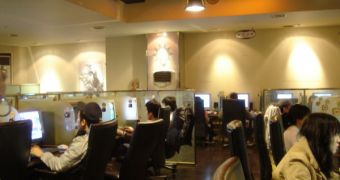It's common knowledge that the Internet is usually accessed by people in the 18 to 33 year-old category, with youngsters dominating the social scene without a doubt. However, lately, a bizarre trend was recorded among World Wide Web users, namely that seniors have begun to go online a lot more often than they used to, threatening even to break the domination that the younger age group has over the network. And while there might still be some time before they manage to “dethrone” the impact that teens have on social networks, the elderly could easily reach a point where they dominate other websites.
Since 2005, the 70 to 75-year-old population segment registered the most significant increase on the Internet, a new analysis by the Pew Research Center, based in Washington, shows. "While just over one-fourth (26 percent) of 70-75 year olds were online in 2005, 45 percent of that age group is currently online," says the Pew Internet & American Life Project. This age segment most often uses e-mail services, but a growing trend is that of seniors using instant messaging and social networking sites as well. Some even created blogging accounts, from which they share details of their lives or their thoughts, like any self-respecting blogger.
But the fact that seniors use e-mails first is widely regarded as obsolete by the teen segment of the Internet. Indeed, the Pew research showed that the percentage of youngsters using e-mails dropped from 89 percent in 2004 to just 73 percent in 2008. Instead, they shifted to instant messaging, which they see as being far more useful than sending a message that the receiver might or might not read in time. Over the last few years, the purpose of the e-mail has translated from instant communication to official business, and remained a method for contacting unknown people or for other such matters.
The elderly also seek a lot of medical information on the Web, regarding treatment options, and also extensive information about drugs, which is an area that teens are not interested in at all. The same domain is also scouted by 33 to 44 year olds, who are looking for data on behalf of their parents, who do not know how to use a computer. Also 65 percent of adults browsing the Web use the Internet for banking services, to avoid trips to the bank, which take a lot of time, the Pew study revealed.

 14 DAY TRIAL //
14 DAY TRIAL //